End-to-end reproducible Machine Learning pipelines on Kubernetes#
This is Part 3 - End-to-end reproducible Machine Learning pipelines on Kubernetes of technical blog series titled [Reproducibility in Machine Learning]. Part 1 & Part 2 can be found here & here respectively.
Change Anything Changes Everything (CAKE) principle -[Scully et al][scully_2015] is real in ML. Also, 100% reproducible ML code comes at a cost of speed - a non-negotiable aspect in today's time. If we cannot be 100% and change is evident, then the only way to maintaining explainability, understanding, trust & confidence is through version control everything.
Figure 1: Version control explained by XKCD
In this post, we will be looking at building an end to end fully automated ML pipeline that can maintain full provenance across the entire ML system. In my view, a standard machine learning workflow looks like the one below:
Figure 2: Machine Learning end to end system
So we will be working towards building this system with full provenance over it. For this, we will be extending our sample semantic segmentation example based on Oxford Pet dataset
To build this ML workflow, we will be using Kubernetes - a container orchestration platform. On top of Kubernetes, we will be running Pachyderm software that will do the heavy lifting of maintaining provenance across data, artifacts, and ml processes.
What to version control#
In part 1 of this blog series, we discussed above the challenges, shown in figure 3, in realizing reproducible ML.
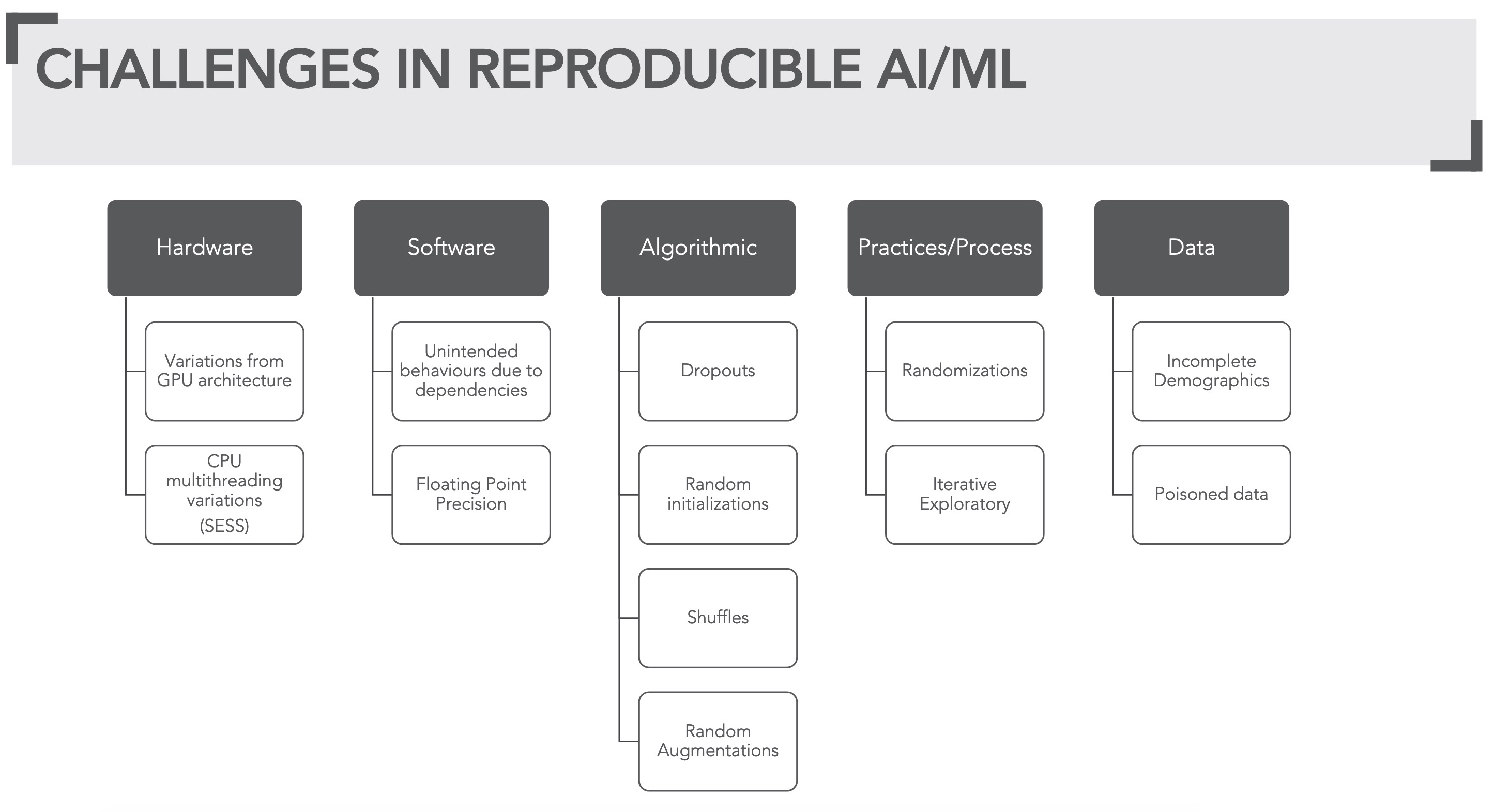 Figure 3: Overview of challenges in reproducible ML
Figure 3: Overview of challenges in reproducible ML
The presence of these challenges in the system-wide view of ML is shown in figure 4.
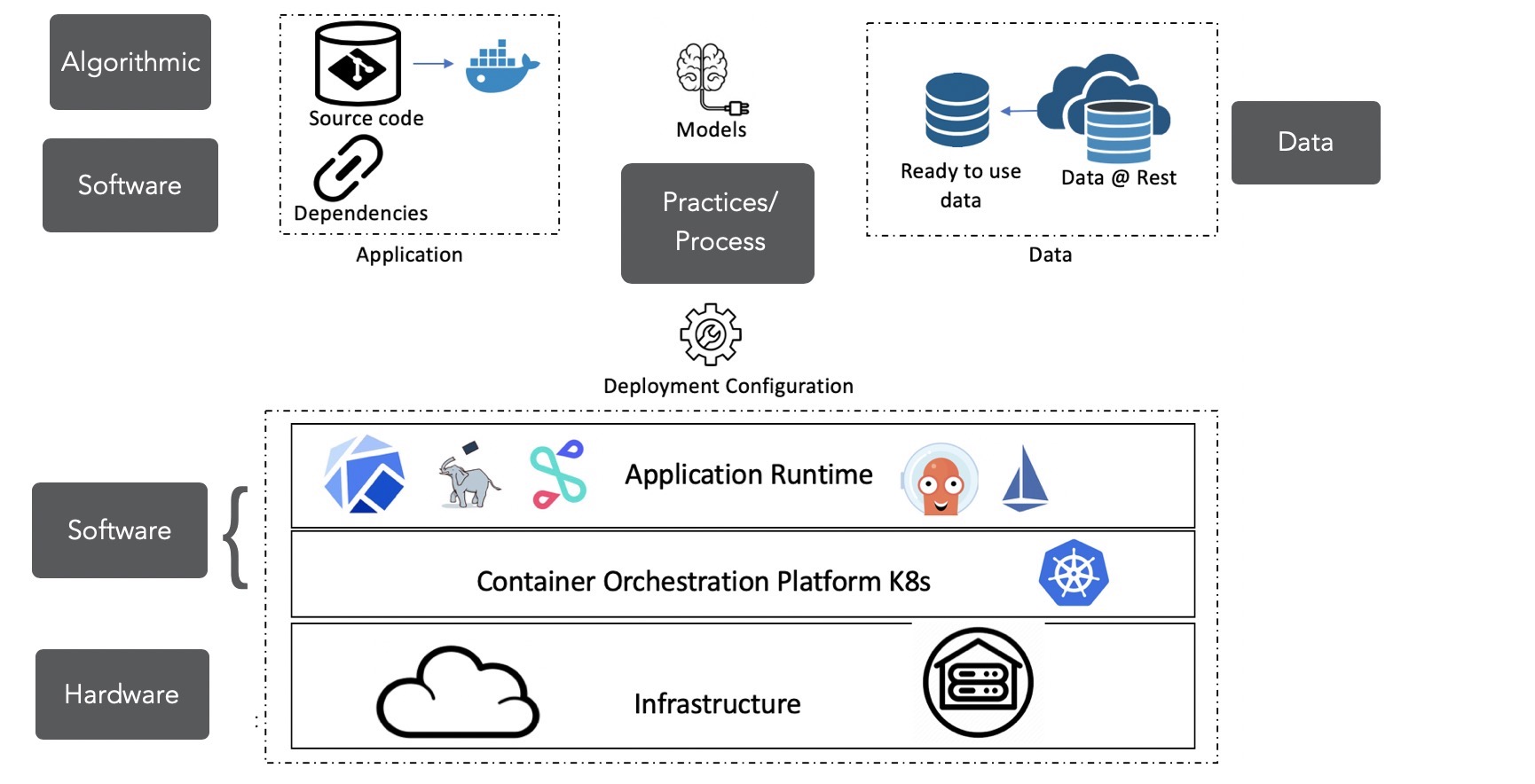 Figure 4: What to version control?
Figure 4: What to version control?
But first, let's talk about creating the environment, infrastructure, and versioning it.
1. Versioning environment#
Using gitops environment and any changes associated with it can be version controlled. In this sample, we will be using ArgoCD to implement GitOps workflow (figure 5) which will see our environment config moved to be alongside the code repository (figure 6).
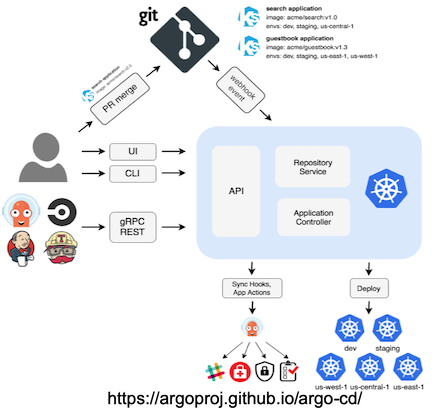 Figure 5: Gitops
Figure 5: Gitops
This is achieved by defining argo apps which can be applied on BYO Kubernetes cluster (version 1.14.7) that has ArgoCD installed:
kubectl apply –f https://raw.githubusercontent.com/suneeta-mall/e2e-ml-on-k8s/master/cluster-conf/e2e-ml-argocd-app.yaml
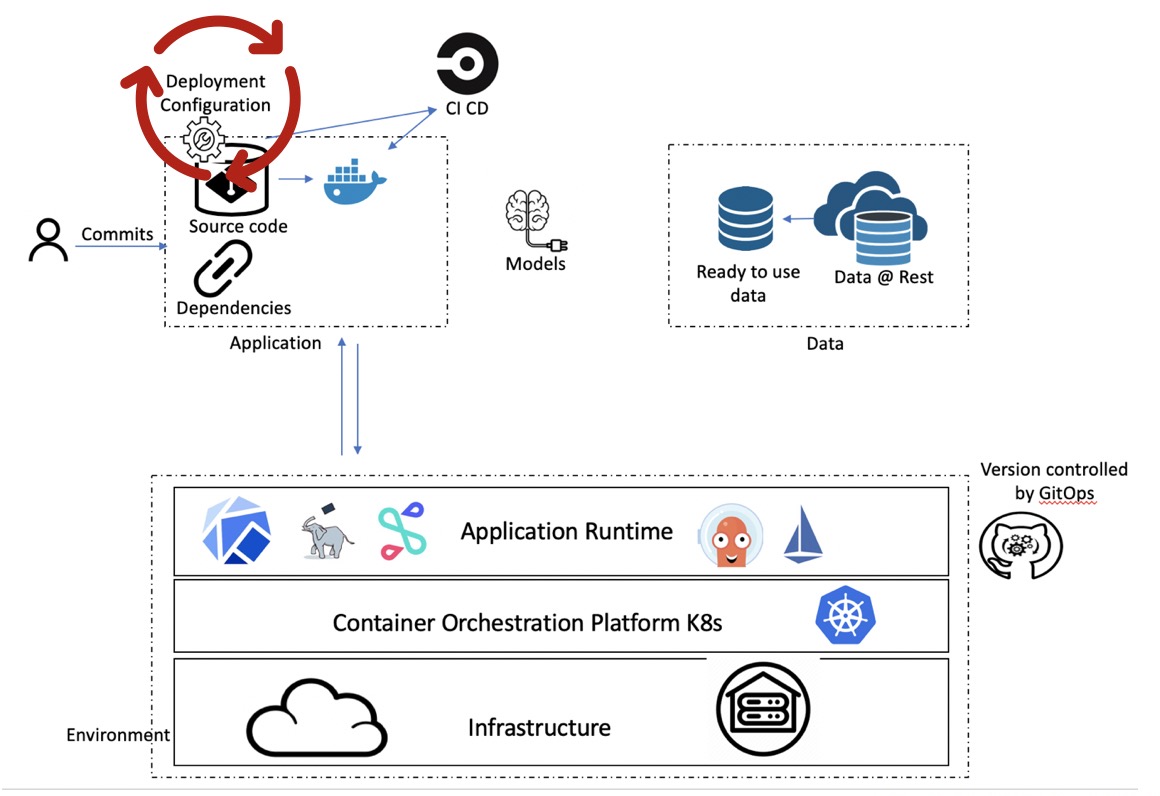 Figure 6: Gitops on environment config
Figure 6: Gitops on environment config
Once the Argo apps are created, the following software will be installed on the cluster: - Kubernetes: 1.14.7 (tested on this version, in theory, should work with other versions too!) - ArgoCD: 1.2.3 - Kubeflow: 0.6.2
Kubeflow is an ML toolkit designed to bring a variety of ML related Kubernetes based software together. - Seldon 0.4.1 (upgraded from packaged version on kubeflow 0.6.2) Seldon is a model serving software - Pachyderm: 1.9.7 Pachyderm offers a git like a repository that can hold data even big data. It also offers automated repository capability that
acton input and generate data thus holding a versioned copy of this generated data. Together with these constructs, it can be used to create pipeline DAG like processes with provenance across graph input, transformation spec, output
Any change on this configuration repository will then trigger a cluster update keeping environment in synced with versioned config.
2. Versioning data, process, and artifacts#
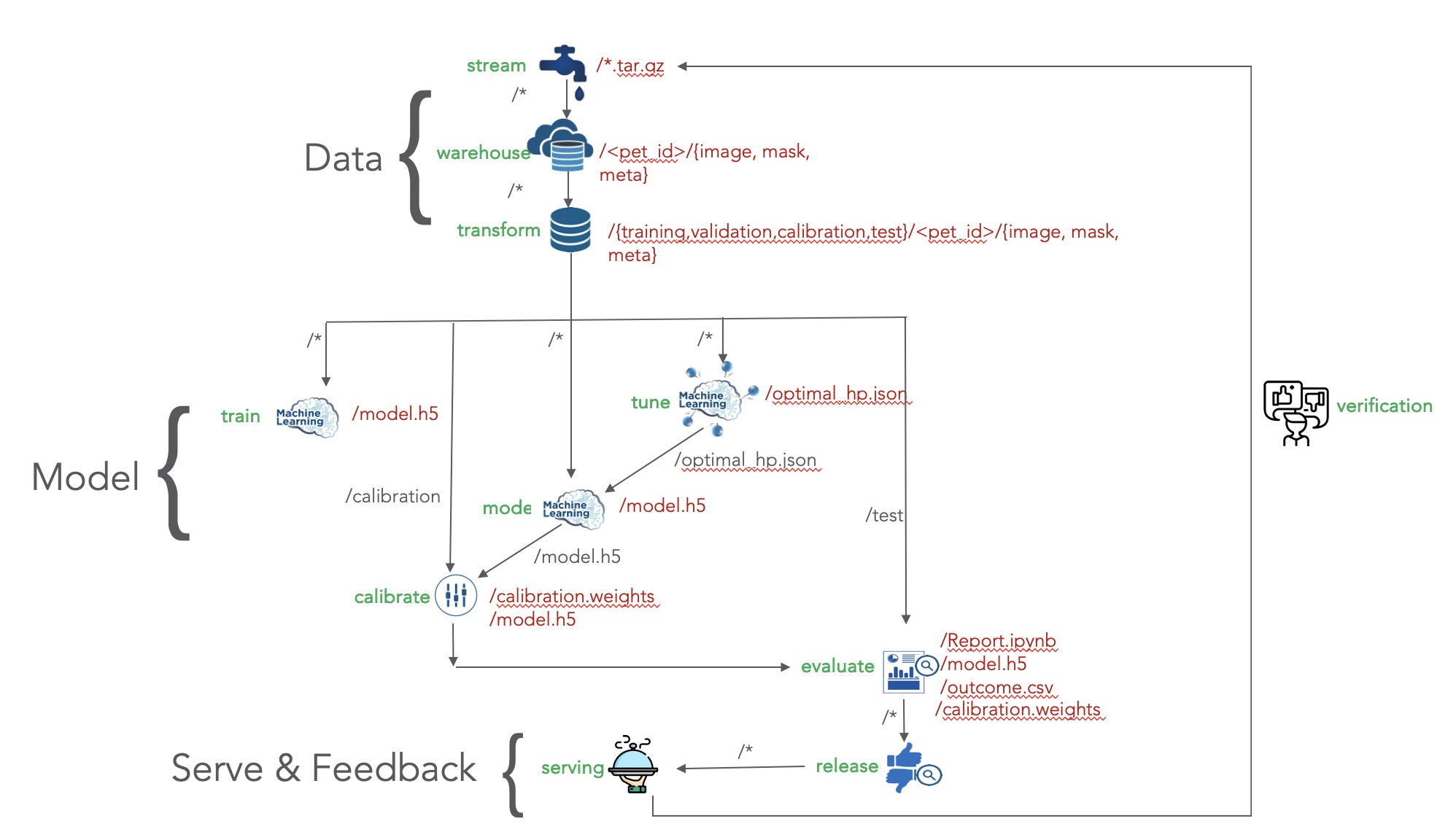 Figure 7: Artifact view of Machine Learning end to end system (shown in figure 2)
Figure 7: Artifact view of Machine Learning end to end system (shown in figure 2)
Pachyderm pipeline specification for an end to end ML workflow capability shown in figure 2 is available here. The generated artifacts/data as a result of this ML workflow is shown in figure 7 above. These artifacts and their association with other processes are also highlighted in figure 7.
---
pipeline:
name: stream
transform:
image: suneetamall/pykubectl:1.14.7
cmd:
- "/bin/bash"
stdin:
- "wget -O images.tar.gz https://www.robots.ox.ac.uk/~vgg/data/pets/data/images.tar.gz && \
wget -O annotations.tar.gz https://www.robots.ox.ac.uk/~vgg/data/pets/data/annotations.tar.gz && \
tar -cvf data.tar.gz *.tar.gz && \
cat data.tar.gz > /pfs/out && \
while :; do sleep 2073600; done"
spout:
overwrite: true
---
input:
pfs:
glob: /
repo: stream
pipeline:
name: warehouse
transform:
cmd:
- "/bin/bash"
image: suneetamall/e2e-ml-on-k8s:1
stdin:
- "python download_petset.py --input /pfs/stream/ --output /pfs/out"
datum_tries: 2
#standby: true
---
input:
pfs:
glob: "/"
repo: warehouse
pipeline:
name: transform
transform:
cmd:
- "/bin/bash"
image: suneetamall/e2e-ml-on-k8s:1
stdin:
- "python dataset_gen.py --input /pfs/warehouse --output /pfs/out"
datum_tries: 2
#standby: true
---
input:
pfs:
glob: "/"
repo: transform
pipeline:
name: train
transform:
cmd:
- "/bin/bash"
image: suneetamall/e2e-ml-on-k8s:1
stdin:
- "python train.py --input /pfs/transform --output /pfs/out --checkpoint_path /pfs/out/ckpts --tensorboard_path /pfs/out"
resource_requests:
memory: 2G
# gpu:
# type: nvidia.com/gpu
# number: 1
datum_tries: 2
#standby: true
---
input:
pfs:
glob: "/"
repo: transform
pipeline:
name: tune
transform:
cmd:
- "/bin/bash"
image: suneetamall/e2e-ml-on-k8s:1
stdin:
- "python tune.py --input /pfs/transform --output /pfs/out"
resource_requests:
memory: 4G
cpu: 1
# gpu:
# type: nvidia.com/gpu
# number: 1
datum_tries: 2
#standby: true
---
input:
cross:
- pfs:
glob: "/"
repo: transform
- pfs:
glob: "/optimal_hp.json"
repo: tune
pipeline:
name: model
transform:
cmd:
- "/bin/bash"
image: suneetamall/e2e-ml-on-k8s:1
stdin:
- "python train.py --input /pfs/transform --hyperparam_fn_path /pfs/tune/optimal_hp.json
--output /pfs/out --checkpoint_path /pfs/out/ckpts --tensorboard_path /pfs/out"
- "ln -s /pfs/tune/optimal_hp.json /pfs/out/optimal_hp.json"
resource_requests:
memory: 2G
# gpu:
# type: nvidia.com/gpu
# number: 1
datum_tries: 2
#standby: true
---
input:
cross:
- pfs:
glob: "/calibration"
repo: transform
- pfs:
glob: "/model.h5"
repo: model
pipeline:
name: calibrate
transform:
cmd:
- "/bin/bash"
image: suneetamall/e2e-ml-on-k8s:1
stdin:
- "python calibrate.py --input /pfs/transform --model_weight /pfs/model/model.h5 --output /pfs/out"
- "ln -s /pfs/model/model.h5 /pfs/out/model.h5"
datum_tries: 2
#standby: true
---
input:
cross:
- pfs:
glob: "/test"
repo: transform
- pfs:
glob: "/"
repo: calibrate
pipeline:
name: evaluate
transform:
cmd:
- "/bin/bash"
image: suneetamall/e2e-ml-on-k8s:1
stdin:
- "papermill evaluate.ipynb /pfs/out/Report.ipynb \
-p model_weights /pfs/calibrate/model.h5 \
-p calibration_weights /pfs/calibrate/calibration.weights \
-p input_data_dir /pfs/transform \
-p out_dir /pfs/out \
-p hyperparameters /pfs/calibrate/optimal_hp.json"
- "ln -s /pfs/calibrate/model.h5 /pfs/out/model.h5"
- "ln -s /pfs/calibrate/calibration.weights /pfs/out/calibration.weights"
resource_requests:
memory: 1G
datum_tries: 2
#standby: true
---
input:
pfs:
glob: "/"
repo: evaluate
pipeline:
name: release
transform:
cmd:
- "/bin/bash"
image: suneetamall/e2e-ml-on-k8s:1
stdin:
- "python release.py --model_db evaluate --input /pfs/evaluate/evaluation_result.csv --version ${evaluate_COMMIT}"
pod_spec: '{"serviceAccount": "ml-user", "serviceAccountName": "ml-user"}'
datum_tries: 2
#standby: true
---
## Service https://docs.pachyderm.io/en/1/concepts/pipeline-concepts/pipeline/service.html
input:
pfs:
glob: "/"
repo: model
pipeline:
name: tensorboard
service:
external_port: 30888
internal_port: 6006
transform:
cmd:
- "/bin/bash"
stdin:
- tensorboard --logdir=/pfs/model/
image: suneetamall/e2e-ml-on-k8s:1
---
This pipeline creates ML workflow, with artifact dependency shown in above figure 7, wherein full provenance across data, processes, and outcomes are maintained along with respective lineage.
This is the last post of the technical blog series, [Reproducibility in Machine Learning].
[Reproducibility in Machine Learning]: /2019/12/20/Reproducibility-in-Machine Learning.html
[scully_2015]: https://papers.nips.cc/paper/5656-hidden-technical-debt-in-Machine Learning-systems.pdf
